Muhammad Sohaib
Multi-Aperture Fusion of Transformer-Convolutional Network (MFTC-Net) for 3D Medical Image Segmentation and Visualization
Jun 24, 2024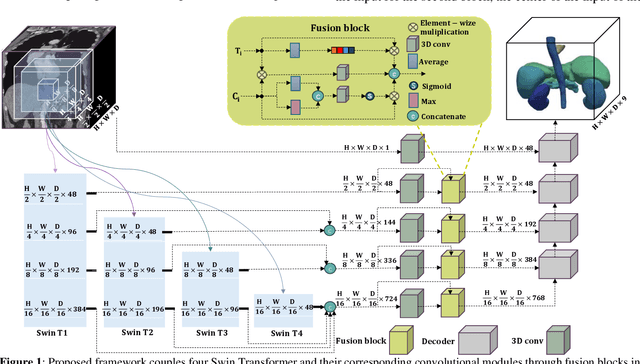

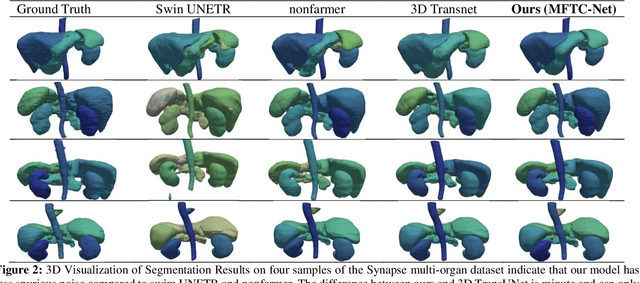
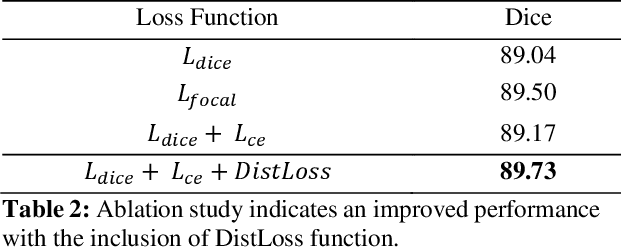
Abstract:Vision Transformers have shown superior performance to the traditional convolutional-based frameworks in many vision applications, including but not limited to the segmentation of 3D medical images. To further advance this area, this study introduces the Multi-Aperture Fusion of Transformer-Convolutional Network (MFTC-Net), which integrates the output of Swin Transformers and their corresponding convolutional blocks using 3D fusion blocks. The Multi-Aperture incorporates each image patch at its original resolutions with its pyramid representation to better preserve minute details. The proposed architecture has demonstrated a score of 89.73 and 7.31 for Dice and HD95, respectively, on the Synapse multi-organs dataset an improvement over the published results. The improved performance also comes with the added benefits of the reduced complexity of approximately 40 million parameters. Our code is available at https://github.com/Siyavashshabani/MFTC-Net
Hybrid Online-Offline Learning for Task Offloading in Mobile Edge Computing Systems
Feb 27, 2024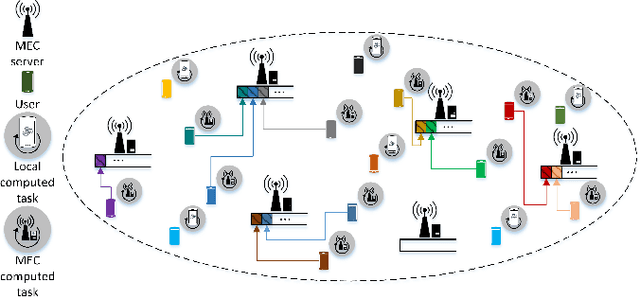
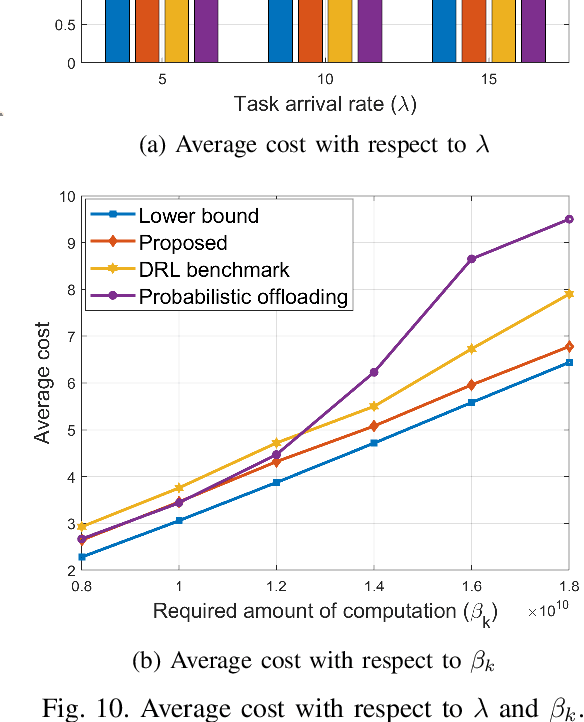
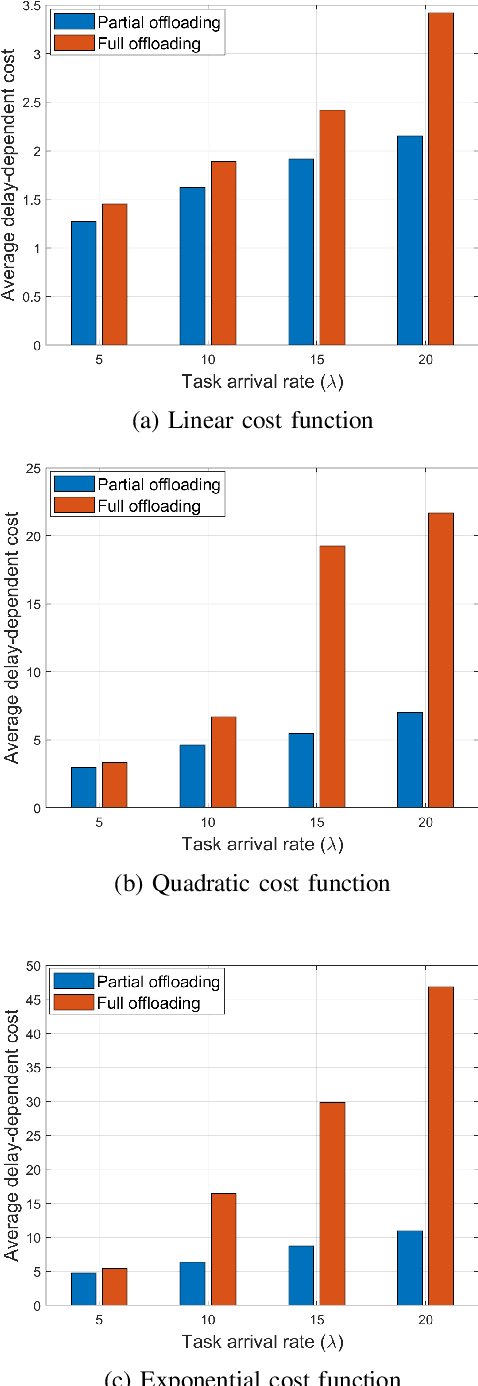
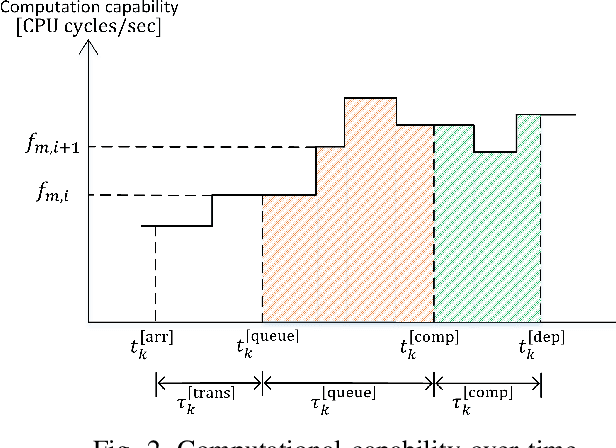
Abstract:We consider a multi-user multi-server mobile edge computing (MEC) system, in which users arrive on a network randomly over time and generate computation tasks, which will be computed either locally on their own computing devices or be offloaded to one of the MEC servers. Under such a dynamic network environment, we propose a novel task offloading policy based on hybrid online-offline learning, which can efficiently reduce the overall computation delay and energy consumption only with information available at nearest MEC servers from each user. We provide a practical signaling and learning framework that can train deep neural networks for both online and offline learning and can adjust its offloading policy based on the queuing status of each MEC server and network dynamics. Numerical results demonstrate that the proposed scheme significantly reduces the average computation delay for a broad class of network environments compared to the conventional offloading methods. It is further shown that the proposed hybrid online-offline learning framework can be extended to a general cost function reflecting both delay and energy-dependent metrics.
* accepted by IEEE Transactions on Wireless Communications
Artificial intelligence based prediction on lung cancer risk factors using deep learning
Apr 11, 2023Abstract:In this proposed work, we identified the significant research issues on lung cancer risk factors. Capturing and defining symptoms at an early stage is one of the most difficult phases for patients. Based on the history of patients records, we reviewed a number of current research studies on lung cancer and its various stages. We identified that lung cancer is one of the significant research issues in predicting the early stages of cancer disease. This research aimed to develop a model that can detect lung cancer with a remarkably high level of accuracy using the deep learning approach (convolution neural network). This method considers and resolves significant gaps in previous studies. We compare the accuracy levels and loss values of our model with VGG16, InceptionV3, and Resnet50. We found that our model achieved an accuracy of 94% and a minimum loss of 0.1%. Hence physicians can use our convolution neural network models for predicting lung cancer risk factors in the real world. Moreover, this investigation reveals that squamous cell carcinoma, normal, adenocarcinoma, and large cell carcinoma are the most significant risk factors. In addition, the remaining attributes are also crucial for achieving the best performance.
Dynamic Multichannel Access via Multi-agent Reinforcement Learning: Throughput and Fairness Guarantees
May 10, 2021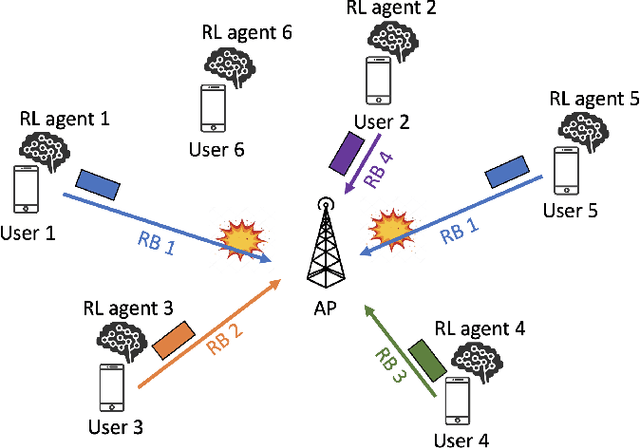

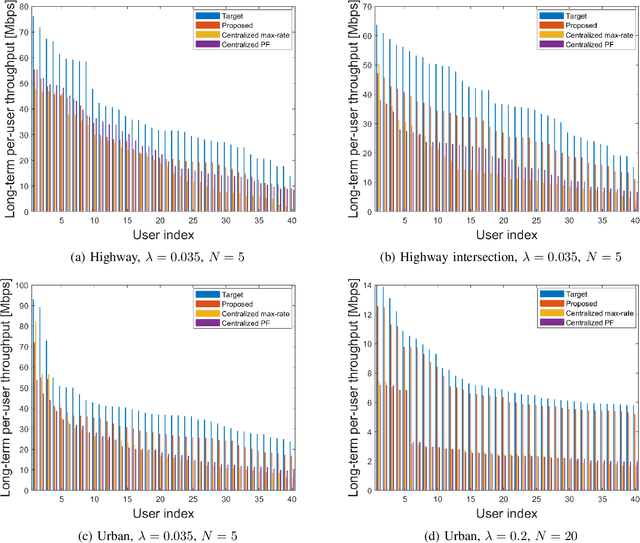
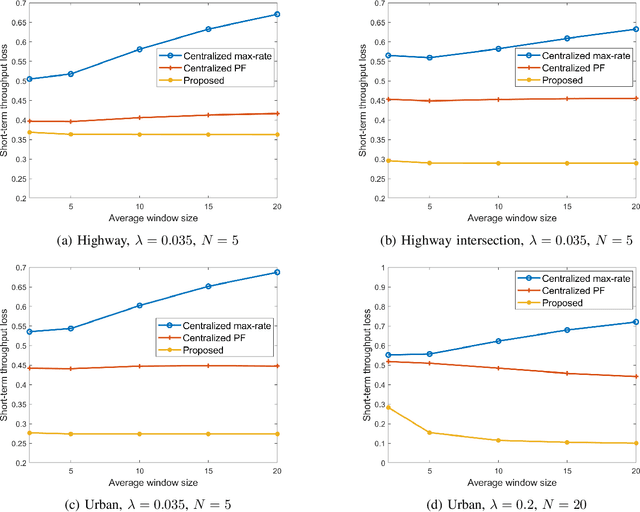
Abstract:We consider a multichannel random access system in which each user accesses a single channel at each time slot to communicate with an access point (AP). Users arrive to the system at random and be activated for a certain period of time slots and then disappear from the system. Under such dynamic network environment, we propose a distributed multichannel access protocol based on multi-agent reinforcement learning (RL) to improve both throughput and fairness between active users. Unlike the previous approaches adjusting channel access probabilities at each time slot, the proposed RL algorithm deterministically selects a set of channel access policies for several consecutive time slots. To effectively reduce the complexity of the proposed RL algorithm, we adopt a branching dueling Q-network architecture and propose an efficient training methodology for producing proper Q-values over time-varying user sets. We perform extensive simulations on realistic traffic environments and demonstrate that the proposed online learning improves both throughput and fairness compared to the conventional RL approaches and centralized scheduling policies.
 Add to Chrome
Add to Chrome Add to Firefox
Add to Firefox Add to Edge
Add to Edge